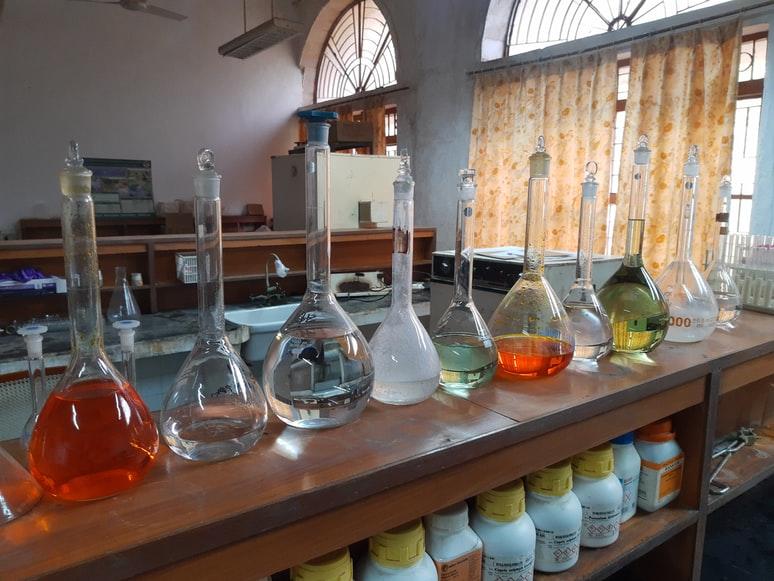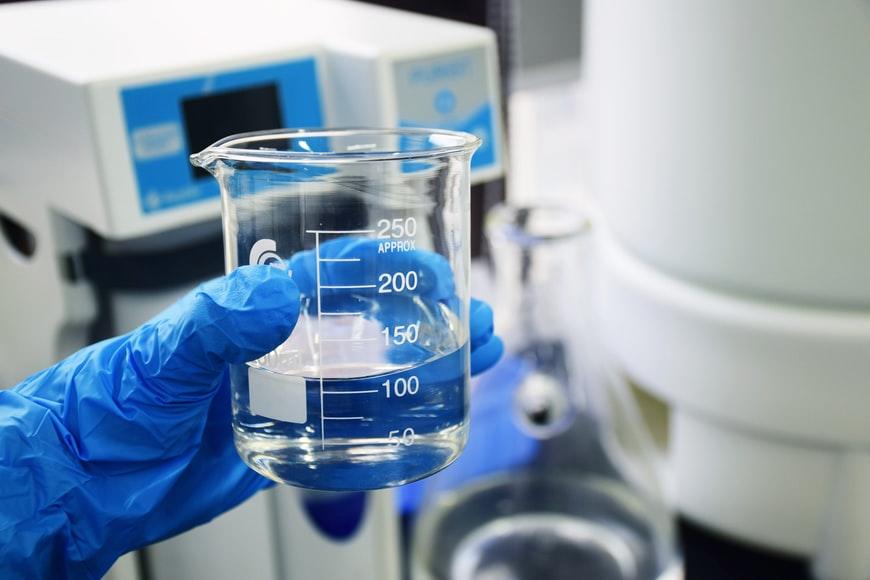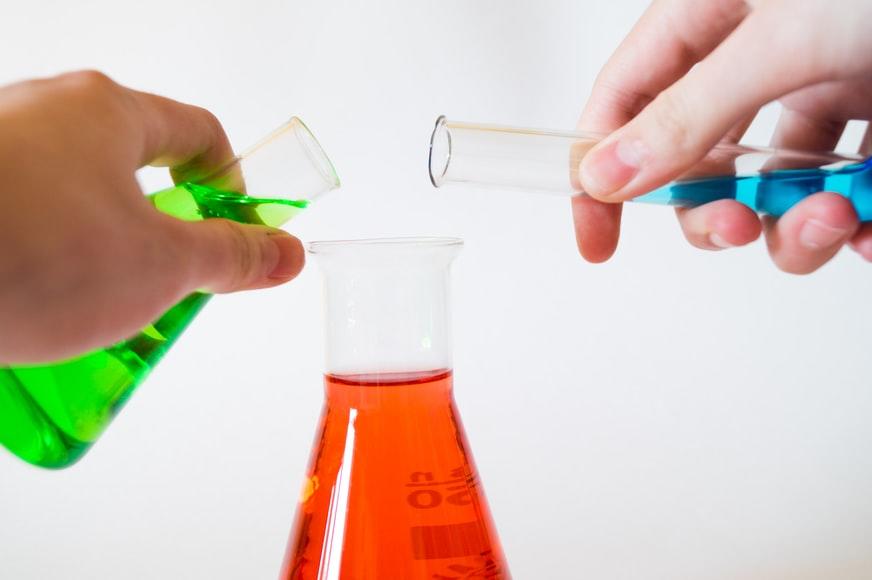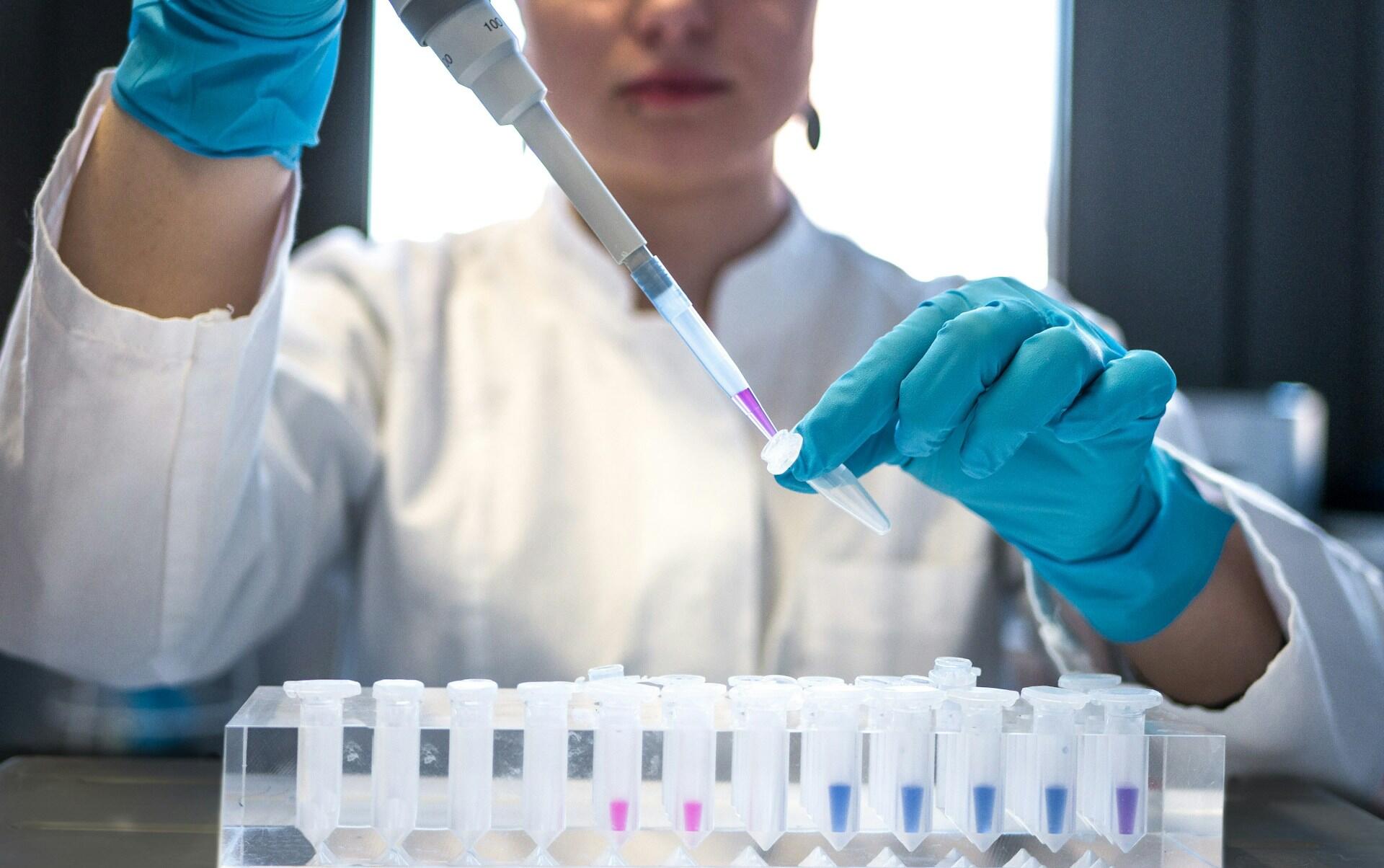A career as a chemistry instructor can allow many undergraduate, graduate, and other professionals to improve their teaching and instructional abilities.
A chemistry tutor is a qualified professional who assists students in overcoming learning difficulties in the complex subject.
They assess the student's training requirements, fully demonstrate lessons, and offer example tasks and assignments to reinforce understanding. These people may also assist learners with assignments, lab activities, and projects.
Chemistry tutors often work beyond the classroom; however, some may be hired by schools, visit schools, or work for a tutoring firm.
These professionals frequently collaborate with their pupils in a laboratory setting to help with lab projects, experiments, and procedures.

How Much Do Chemistry Teachers Earn?
The chemistry instructor's purpose is to give academic help and guidance to the student to guarantee that they know chemical ideas and can achieve them in the classroom.
Most chemistry instructors hold a bachelor's degree in chemistry, biochemistry, or a related discipline and should be well-versed in chemical fundamentals.
These experts should be able to communicate chemical ideas to pupils and have strong communication, interpersonal, and organizational abilities. As a result, teachers should know how to set their own rates.
Usually, chemistry teachers have prior teaching experience, and in the United States, many tutors may earn up to $37,000 per year.
There is more to it than meets the eye when being a chemistry tutor. For instance, a chemistry teacher earns $13.42 hourly on average.
That equates to $27,910 each year. In comparison, a private chemistry tutor's salary is $32, which leads to $66,918 yearly.
However, if you want to know more about how much you can earn as a chemistry teacher, click here.

What Does A Chemistry Tutor Do?
Chemistry professors help to educate future engineers, scientists, and healthcare providers. They give a fundamental grasp of how the universe operates via chemical reactions.
However, these professionals must satisfy the education, teaching, and licensing requirements of the institution where they plan to teach.
They assist students in developing a grasp of chemistry while also offering real applications to enhance learning.
Therefore, chemistry professors greatly aid learners to help them grasp and apply scientific principles.
Additionally, chemistry teachers:
- Give hands-on training
- ESL students' teachings are modified
- Generate course outlines that adhere to the state or national standards and assessment
- Create and manage instructional documents, as well as update student records
- To educate pupils in mathematics and science, use both traditional and unusual techniques
- Help out in different areas of the school
Learn chemistry from organic chemistry tutors online and get on with your tutoring career! Most online platforms offer professional and friendly instructors teaching you everything from scratch, making it easier to grasp all the concepts and comprehend the subject with no hassle.

Chemistry Professors Must-Have Certain Abilities
Chemistry instructors are skilled in both hard and soft abilities that indicate their understanding of science and its implications, and also their capacity to teach
When it comes to the most critical talents necessary to be a chemistry tutor, 43.4% of chemistry tutors claimed it to be knowledge of chemistry, 32.8% stated communication, and 4.8% cited Mathematics.
These abilities are helpful to have when carrying out essential employment tasks. If you want to become a chemistry professor, then you need to have these skills:
Communication
Chemistry professors frequently connect complicated concepts, and their communication skills show their capacity to explain or convey an idea.
In addition, teachers interact with and get their message across to:
- School personnel
- Management
- Parents
- Pupils
Teaching Competence
Instructors work together to create successful teaching materials that interest pupils in learning and provide real-world applications of science ideas.
Effective instructors set the bar high for their pupils, monitor their progress, and help them comprehend topics.
Chemistry instructors attend a variety of seminars to improve their classroom and lab education, as well as their testing and grading abilities.
This also includes creating a compelling course outline for various levels of education – only a capable instructor will know how to do so.
Controlling The Classroom
Effective chemistry instructors work with other professors and science professionals to develop instructional improvement approaches.
They participate in ongoing training classes to improve classroom management skills, such as disciplinary action and organizing strategies.
Experiments In The Lab
Chemistry instructors promote learning by explaining how and why a subject works in a hands-on setting where teachers produce solutions or compounds for demonstration.
Educators then help students with their laboratory experiments, assist lab experiments, and answer concerns about the method or technique.
Time Management
Time management is essential. Chemistry professors utilize time management techniques to ensure that students have enough time for lab work, lectures, demonstrations, assignments, and assessments.
Solving Problems
Chemistry teachers practice problem-solving skills by detecting and resolving problems or challenges. In addition, they educate problem-solving skills by using and demonstrating scientific ideas.
Enthusiasm
Successful chemistry professors are enthusiastic about their topic and share that enthusiasm with their pupils.
Confidence fosters an informative and engaging learning atmosphere where children may appreciate science concepts and effectively learn.

What Is the Process of Becoming a Chemistry Tutor?
If you want to be a chemistry tutor, among the first factors you should think about is how much education you require.
74.6% of chemistry tutors have a bachelor's degree or above. Meanwhile, 6.9% of chemistry tutors hold a master's degree.
And even though most chemistry tutors have a college degree, you can also start your career with only a high school diploma or GED.
A chemical tutor is a trained educator. A degree in chemistry or a closely related subject is required for this position.
Those in this field have previous experience dealing with children in a classroom or academic setting. Therefore, an excellent chemistry teacher should create a relaxing learning atmosphere.
Want to become a chemistry teacher? Here is what you need to do:
| Steps | Steps To Become A Seasoned Chemistry Tutor |
|---|---|
| 1 | Enroll in Chemistry classes at school |
| 2 | Gain a Bachelor's Degree with a Chemistry concentration or any other Science subject |
| 3 | Gain the merits to qualify as a teacher |
| 4 | Apply for a teaching license |
| 5 | Pursue further studies — Graduate Degree, Ph.D., etc. |
| 6 | Work in a professional organization |
| 7 | Create an impactful resume |
Take Chemistry Classes In High School
Enroll in geometry, biology, physics, calculus, and chemistry classes while you're still in high school.
Consider working part-time in a pharmacy or a related workplace to better understand the applications of chemical concepts.
Additionally, the scientific classes you take in high school will help you study in college and give you a strong start on your bachelor's degree.
Acquire A Bachelor's Degree
Following graduation from high school, the next stage is to get a bachelor's degree in chemistry or education.
High school chemistry instructors can major in teaching while minoring in chemistry. Students can enroll in an authorized teacher-education program in addition to their regular studies, or they also have an option to study independently after receiving their degree.
Please choose a program that the National Council recognizes for Accreditation of Teacher Education to satisfy criteria and regulations.
In addition, consider joining chemical and science organizations or honors societies to broaden your experience and encourage networking opportunities or job postings.
Bear in mind that certain school systems may demand a master's degree to teach chemistry; be sure to verify your state's chemistry teacher requirements.
The following college chemistry courses are suggested for chemistry teachers:
- Physics
- Biology
- Calculus
- Organic chemistry
- General chemistry
- Inorganic chemistry
- Chemistry labs
- Physical chemistry
Complete The Student Teaching Prerequisites
Future chemistry instructors may need to meet teaching requirements before filing for teaching certification, generally by doing an internship at a local high school or working as a substitute.
Practice teaching allows students to comprehend the classroom experience from a teacher's perspective and provides an opportunity to learn from other experts.
Consult with your jurisdiction to confirm teaching standards such as internship time and specifications for teaching conditions.
Apply For A Teaching License
Teaching certification standards vary by state, but most require instructors to demonstrate their qualifications by completing tests before being issued a certification.
Take into account that if you relocate to another state, your qualifications may alter, and you may be required to retake examinations.
After becoming certified, states also require instructors to take continuing education courses to keep their teaching license. Again, requirements vary; contact your local school board for further information.

Obtain A Graduate Degree
Some states mandate chemistry professors to have a master's degree, while others encourage students to get one to boost their potential earnings and teaching prospects.
The Master's degree curriculum is designed for those who are not teachers but have a bachelor's degree in chemistry and accredited instructors who want to continue pursuing their chemistry education. For bachelor's degree holders who wish to teach, earning a Master of Arts in teaching is popular. Chemistry professors with a master's degree may often teach at two-year institutions.
A Ph.D. in chemistry usually is necessary for teaching in a four-year college or university. After getting a bachelor's degree, this usually takes another six years and involves research and specialized education.
Work In A Professional Organization
Think about joining a professional group such as the Association of American Educators once you have earned your diploma and certification.
Professional organizations allow you to network with other professionals in your industry while learning about continuing education programs and employment possibilities.
Some teachers may join a professional organization such as the National Education Association or the American Federation of Teachers to better understand their rights and obligations as educators.
Create A Resume
Make your CV stand out by including your education, expertise, and employment objectives. In addition, include information about your:
- Internships
- Teaching experience
- Coursework
We've included a list of critical abilities to emphasize on your resume or in your cover letter.
Chemistry Tutor Near You
If you search for a chemistry tutor near me, go to Superpof and find ample tutors to learn from.
If you are located in Southern California, you might want to consider connecting with a san diego chemistry tutor for personalized guidance.
A wide range of topics are covered in the chemistry class you will be taking from our tutors.
Are you concerned about the prices per class? Our site has complete transparency of our experts' qualifications and the charges. So you know what you are walking into when you sign up with us.
Get started with chemistry classes online on Superprof today!
Summarize with AI:
























